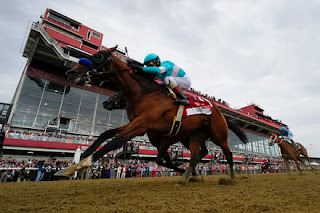Title: The Ugly Side of Horse Racing: Baffert's Double-Edged Sword It's supposed to be a day of celebration for horse racing fans as the Preakness Stakes draws to a close. However, the events of May 20, 2023, would leave an unpleasant taste in the mouth of many. The day's results produced a double-edged sword for the famed trainer Bob Baffert. As his trainee, National Treasure, clinched the race, another of his horses, Undisputed, sustained fatal injuries while racing. Sure, we can commend Baffert's long-standing prowess in the sport, but at what cost? As horse racing enthusiasts, we should take a step back and evaluate this incident critically. How many more horses have to die before we put an end to the cutthroat culture surrounding horse racing? The sad reality is that fatal injuries are relatively familiar in the equestrian sport, and the industry has hardly put an end to the ugly practice. Notably, the Kentucky Horse Racing Authority records 3.2 horse fatalities per 1,000 starts. While racing is supposed to be an exciting sport to watch, betting on races that put horses at such a high risk of injury and death should not be so commonplace. We cannot continue to turn a blind eye to the harsh reality that racehorses are pushed to their limits, sometimes even to the point of death. And as much as Bob Baffert has undoubtedly solidified his place in horse racing history, we should acknowledge that he is not without faults. After all, it's not the first time that one of his horses has suffered a fatal injury. Horse racing needs to focus on minimizing the dangers that come with the sport. Banning the use of performance-enhancing drugs and harsher penalties for trainers and jockeys who violate the horse's welfare code would be a step in the right direction. Let us vow to be responsible and to stop glorifying a sport that puts animals at such a high risk of harm. At the end of the day, dealing with the issue of horse racing fatalities requires collective efforts from all players involved. If society calls for more ethical behavior, these horse fatalities can decrease. It's time to raise awareness and hold horse racing accountable. A horse trained by Baffert wins the Preakness Stakes while another horse trained by Baffert is fatally injured on the same day. 


